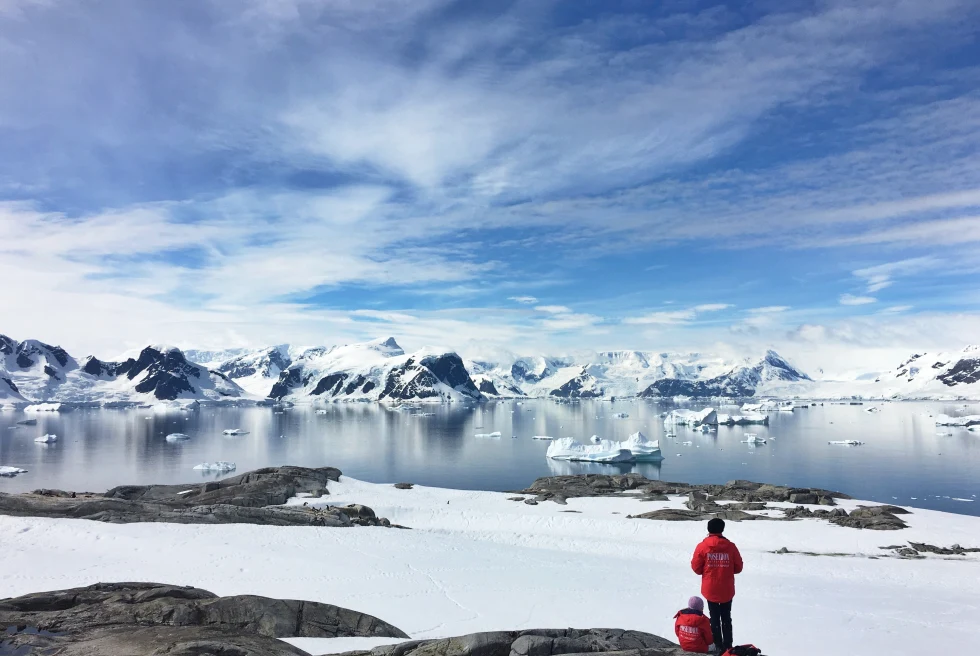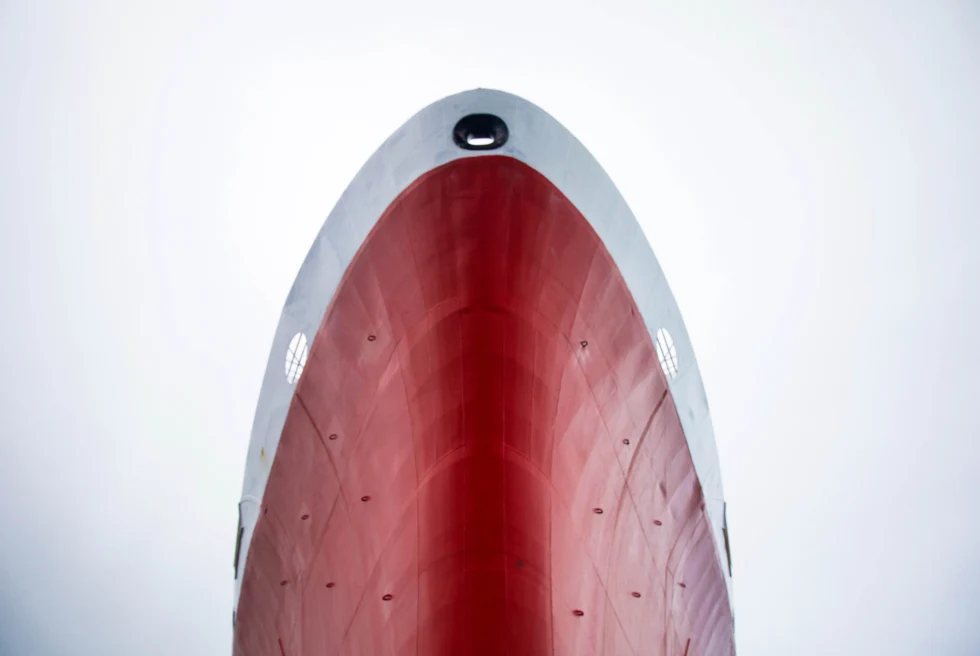
Curator’s statement
Exploring Antarctica is a unique and awe-inspiring adventure that offers unparalleled experiences and insights into one of the most remote and pristine regions on Earth. Here are some compelling reasons why you should consider exploring Antarctica:
Unspoiled Wilderness: Antarctica is one of the last untouched frontiers on the planet. Its vast landscapes, ice formations, and wildlife have remained relatively untouched by human activity, providing a rare opportunity to witness nature's beauty in its purest form.
Stunning Landscapes: The continent is renowned for its breathtaking landscapes, including towering icebergs, dramatic glaciers, snow-covered mountains, and expansive ice shelves. The ever-changing light and colors create a visual spectacle unlike any other.
Unique Wildlife: Antarctica is home to a remarkable array of wildlife, from penguins and seals to whales and seabirds. Observing these animals in their natural habitat, often exhibiting behavior not seen in more accessible locations, is a privilege and a memorable experience.
Scientific Discovery: Antarctica plays a crucial role in global scientific research, particularly in fields like climate change, glaciology, and marine biology. Exploring the continent allows you to gain firsthand knowledge about ongoing research and conservation efforts.
Adventure and Exploration: The sense of adventure associated with traveling to a remote and challenging environment like Antarctica is unparalleled. Activities such as kayaking, ice climbing, and camping on the ice offer unique and exhilarating experiences.
Photography Opportunities: The stunning and otherworldly landscapes of Antarctica provide photographers with an incredible canvas for capturing breathtaking images. The lighting conditions and the juxtaposition of ice, water, and wildlife create endless possibilities.
Connect with Nature: Being in Antarctica offers a chance to disconnect from the fast-paced world and connect with nature on a profound level. The solitude and vastness of the environment can provide a sense of tranquility and perspective.
Rare Weather Phenomena: Antarctica is known for its extreme weather conditions, including the mesmerizing display of the Southern Lights (Aurora Australis). Witnessing this natural light show is an unforgettable experience.
Polar History: Antarctica has a rich history of exploration, with stories of legendary expeditions led by explorers like Ernest Shackleton and Roald Amundsen. Exploring historic huts and retracing the steps of these pioneers adds a layer of cultural significance to the journey.
Environmental Awareness: Visiting Antarctica can foster a deeper understanding of the importance of conservation and sustainable practices. The fragility of this ecosystem underscores the need to protect it for future generations.
Personal Growth: The challenges and rewards of exploring Antarctica can lead to personal growth, resilience, and a greater appreciation for the natural world. It's important to note that traveling to Antarctica requires careful planning, as it's a remote and extreme environment. Most visitors travel through organized expeditions with specialized tour operators that adhere to strict environmental guidelines to minimize the impact on the delicate ecosystem.
Overall, exploring Antarctica is a once-in-a-lifetime opportunity that offers a unique blend of adventure, natural beauty, scientific discovery, and personal enrichment that is truly unparalleled.
The Fora Difference
Book with Anne to access exclusive perks and experiences on your trip.
Killer perks
Free upgrades, spa credits and more—we got you
Personalized recs
Customized travel planning for your style
Insider knowledge
Expert advice from people who’ve actually been there
Where to stay in Antarctica
Unlock perks by contacting Anne to book your trip.
Things to do in Antarctica

Visit Research Stations: Gain insights into ongoing scientific research by visiting research stations operated by various countries. Learn about climate studies, glaciology, and other research being conducted in this extreme environment.
Explore Icebergs and Glaciers: Marvel at the massive icebergs and glaciers that dot the coastline. Some cruise ships offer opportunities for up-close encounters, either through small boat excursions or by landing on ice floes.
Observe Wildlife: Witness the diverse wildlife that calls Antarctica home, including penguins (Adélie, chinstrap, gentoo, and emperor), seals (Weddell, crabeater, leopard, and more), and various seabird species. Get a chance to observe their behaviors and natural habitats.
Whale Watching: Antarctica is a prime location for whale watching. Keep an eye out for humpback, minke, orca (killer) whales, and possibly even blue whales, as they migrate through these cold waters.
Kayaking: Some expedition cruises offer kayaking excursions, allowing you to paddle among icebergs and get even closer to the wildlife. This provides a unique perspective on the Antarctic landscape.
Photography: Capture stunning images of the dramatic landscapes, ice formations, wildlife, and unique lighting conditions that Antarctica offers. The photographic opportunities are endless.
Camping on the Ice: Some expeditions provide the opportunity to camp on the ice, offering a truly immersive experience in the Antarctic environment. Sleeping in the open under the midnight sun or the Southern Lights is a remarkable experience.
Guided Hikes: Participate in guided hikes on remote islands and along the Antarctic Peninsula, where you can explore the diverse landscapes, observe wildlife, and learn about the region's geology and history.
Polar Plunges: For the adventurous, take a polar plunge into the frigid waters of Antarctica. This daring activity is often done in a controlled and safe manner, and it's a badge of honor for many expeditioners.
Lectures and Workshops: Expedition cruises typically feature onboard experts who provide lectures on subjects like polar ecology, geology, history, and climate change. These educational sessions enhance your understanding of the region.
Zodiac Cruises: Explore coastal areas and get up close to ice formations and wildlife by taking guided Zodiac boat cruises.
Cross the Antarctic Circle: If conditions permit, cross the Antarctic Circle, a geographical milestone that marks the southernmost point of the Earth where the sun can be seen above the horizon on the winter solstice.
The time of year that you go makes a big difference. If you go too early in the summer, like in November or even in December, there are not yet any penguin chicks and some of the seals and whales have not arrived yet. The best time to go is in February! In the middle of summer!
Places to eat & drink in Antarctica

All the expedition ships have an excellent cuisine!

Travel Advisor
Anne Bisgaard

Get in touch with Anne
Did you like this guide? Reach out to customize and book your own experience. Or, just to chat about travel in general.
You can normally expect a response from Anne within a business day or so. You’ll also be subscribed to our travel newsletter (you can unsubscribe at any time).
Looking for more travel inspiration? Check out my guide, Amazing Chile.
This guide is part of our ongoing series on Adventure Travel.